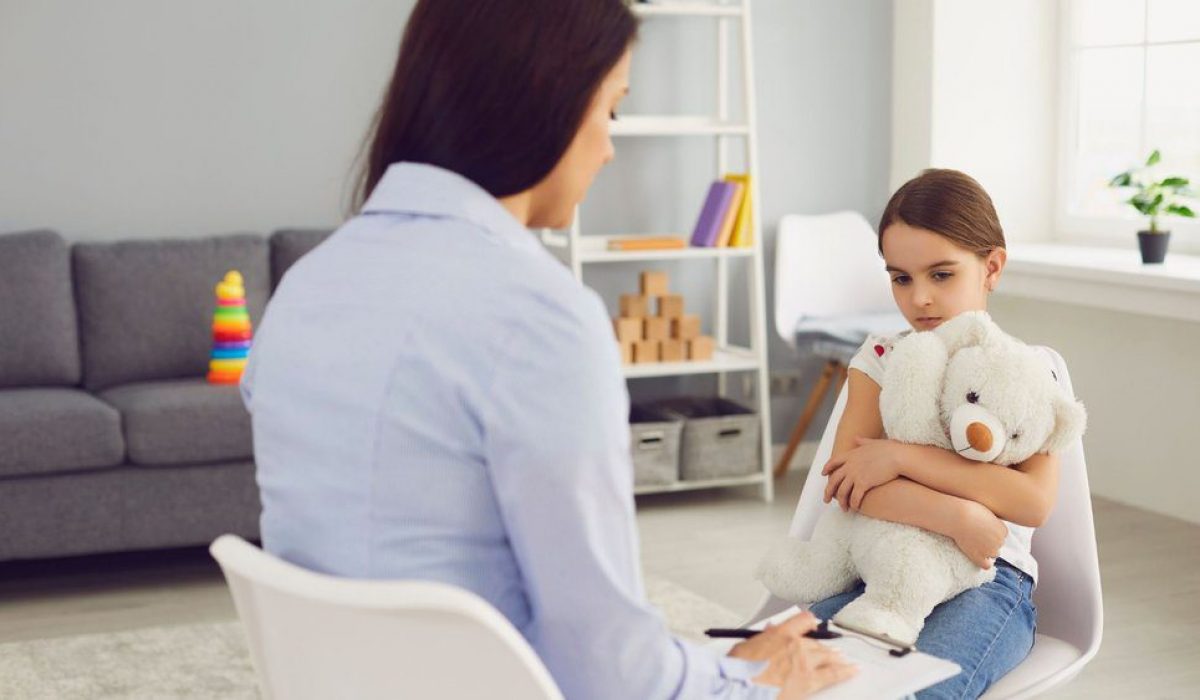In today’s complex and fast-paced world, ensuring the mental well-being of our children is more crucial than ever before. From the pressures of academics to the challenges of navigating social dynamics, children face a myriad of stressors that can impact their mental health. As parents, guardians, or caregivers, it’s our responsibility to recognize the signs of distress and provide appropriate support. However, sometimes our best efforts may not be enough, and seeking professional help becomes essential.
In the realm of mental health care for children, the role of a certified child therapist cannot be overstated. These professionals possess the expertise, training, and experience necessary to address the unique needs of young minds. In this blog post, we will delve into the significance of seeking out a certified child therapist for your child’s mental health and why it should be a priority for every parent or guardian. We’ll explore the specialized skills these therapists bring to the table, the benefits of early intervention, and how their guidance can pave the way for a brighter, healthier future for your child. So, let’s embark on this journey to understand why investing in your child’s mental well-being through certified child therapy is paramount in today’s world.
Navigating Anxiety and Depression in Children: Expert Insights
Understanding Anxiety And Depression In Children:
Anxiety and depression can manifest differently in children compared to adults. While some children may exhibit classic symptoms such as excessive worry or sadness, others may display behavioral issues like irritability or defiance. It’s essential for parents to recognize these signs and understand that anxiety and depression can manifest in diverse ways in children.
Early Identification And Intervention
Early identification and intervention are key in managing anxiety and depression in children. Research shows that untreated mental health issues in childhood can have long-term consequences, impacting academic performance, social relationships, and overall well-being. Seeking professional help from a certified child therapist at the first signs of concern can make a significant difference in a child’s mental health journey.
The Role Of Certified Child Therapists
Certified child therapists possess specialized training and expertise in addressing the unique needs of children and adolescents. They utilize evidence-based techniques tailored to children’s developmental stages to help them understand and manage their emotions effectively. Through play therapy, cognitive-behavioral therapy (CBT), and other modalities, certified child therapists provide a safe and supportive environment for children to express themselves and develop coping skills.
Empowering Children And Families
One of the primary goals of therapy for childhood anxiety and depression is to empower both children and their families. Certified child therapists work collaboratively with parents to develop strategies for supporting their child’s mental health at home and in various social settings. By equipping children with coping mechanisms and resilience-building skills, therapy aims to foster long-term emotional well-being.
Addressing Underlying Factors
In many cases, anxiety and depression in children are influenced by underlying factors such as family dynamics, academic stress, or trauma. Certified child therapists are trained to explore these factors and address them in therapy sessions. By creating a holistic treatment plan that considers all aspects of a child’s life, therapists can help children overcome barriers to their mental health and thrive.
Empowering Resilience: How Therapy Builds Emotional Strength
In the journey of childhood, resilience stands as a cornerstone of emotional well-being. It’s the inner strength that allows children to bounce back from setbacks, adapt to change, and thrive despite adversity. However, nurturing resilience isn’t always an innate process; it often requires guidance and support, especially in the face of challenging circumstances. This is where therapy plays a pivotal role. In this article, we will explore how therapy serves as a catalyst for empowering resilience in children, equipping them with the emotional fortitude needed to navigate life’s ups and downs with confidence and grace.
- Understanding Resilience: Begin by defining resilience and its significance in children’s lives. Discuss the characteristics of resilient children, such as adaptability, problem-solving skills, and a positive outlook.
- Identifying Resilience-Building Factors: Explore the various factors that contribute to resilience in children, including supportive relationships, a sense of belonging, self-regulation skills, and the ability to cope with stress.
- Therapeutic Approaches to Building Resilience: Delve into the different therapeutic techniques and interventions used to foster resilience in children. This may include cognitive-behavioral therapy (CBT), mindfulness practices, narrative therapy, and play therapy.
- Promoting Emotional Regulation: Highlight the importance of emotional regulation in resilience-building. Discuss how therapy helps children recognize and manage their emotions in healthy ways, enabling them to cope effectively with challenges.
Building Healthy Coping Mechanisms: Strategies for Children
Understanding The Need For Coping Mechanisms
Children, like adults, experience stress, anxiety, sadness, and frustration. However, unlike adults, they may lack the maturity and understanding to manage these emotions effectively. Without proper coping mechanisms, children may resort to unhealthy behaviors such as withdrawal, aggression, or avoidance. Over time, these patterns can exacerbate mental health issues and hinder healthy development. Therefore, teaching children how to cope with challenges in constructive ways is essential for their overall well-being.
Identifying Age-Appropriate Coping Strategies
One of the key roles of certified child therapists is to identify age-appropriate coping strategies that resonate with each child’s unique needs and developmental stage. For younger children, simple techniques such as deep breathing exercises, using sensory tools like stress balls or fidget spinners, or engaging in imaginative play can help regulate emotions and reduce anxiety. As children grow older, they can learn more complex coping skills such as journaling, mindfulness meditation, or problem-solving techniques.
Encouraging Healthy Expression Of Emotions
Another important aspect of building healthy coping mechanisms is teaching children to express their emotions in constructive ways. Many children may struggle to articulate their feelings or may feel ashamed or embarrassed about expressing vulnerability. Certified child therapists create a safe and supportive environment where children feel encouraged to express themselves without judgment. Through art therapy, storytelling, or role-playing exercises, children can learn to identify and communicate their emotions effectively.
Promoting Positive Self-Talk And Resilience
Negative self-talk and self-doubt can significantly impact a child’s ability to cope with challenges. Certified child therapists work with children to challenge negative thought patterns and cultivate a positive mindset. By teaching children to reframe negative thoughts into more positive and empowering statements, therapists help them develop resilience and confidence in their ability to overcome obstacles.
Incorporating Family Support And Involvement
Building healthy coping mechanisms is a collaborative effort that involves not only the child but also their family and support system. Certified child therapists work closely with parents, caregivers, and educators to ensure consistency in implementing coping strategies across different environments. By involving families in the therapeutic process, therapists empower them to provide ongoing support and reinforcement outside of therapy sessions.
Conclusion
Wake Counseling & Mediation, we firmly believe in the paramount significance of seeking a certified child therapist for your child’s mental health needs. As residents of Charlotte, North Carolina, we understand the importance of ensuring that children receive specialized care from qualified professionals. Our dedication to providing quality therapy services is rooted in the understanding that certified therapists possess the necessary expertise and training to address the unique emotional and psychological needs of children. By choosing our services, parents can rest assured that their child’s mental well-being is in capable hands, fostering a healthier and happier future for our community’s youth.


